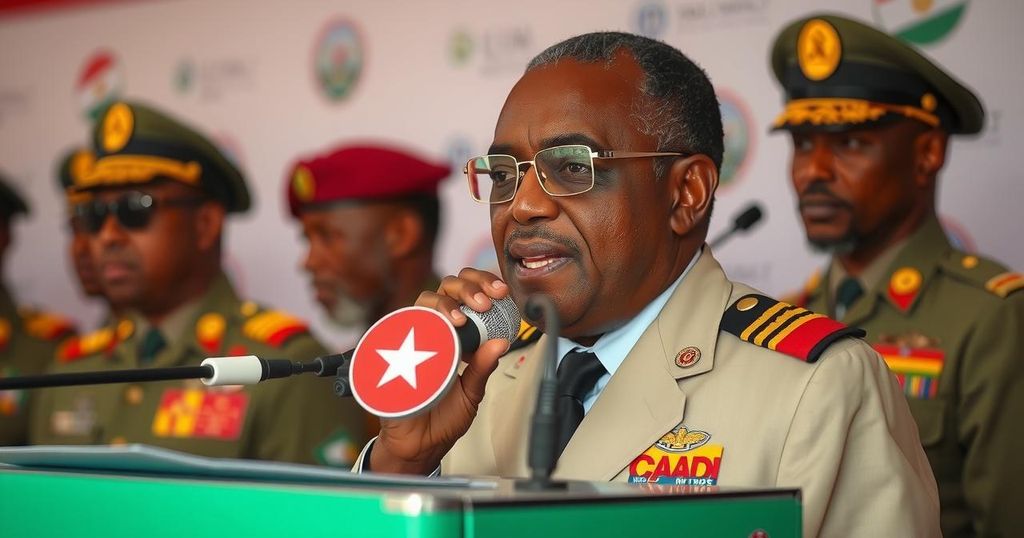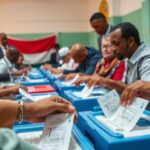Chad’s Historic Election: A Transition Amidst Boycotts and Skepticism
Chad’s general election saw low voter turnout of 38 percent due to opposition boycotts, with many citizens disillusioned by the political process. President Mahamat Idriss Deby urged participation, while allegations of predetermined results and electoral fraud emerged. The elections are part of a larger strategy to transition back to civilian governance after three years of military rule.
Chad held a general election on Sunday, deemed a vital step in concluding three years of military governance. However, voter turnout was notably low at approximately 38 percent, as opposition parties encouraged a boycott, claiming predetermined outcomes. Opposition leader Succes Masra indicated that the boycott was successful, as the majority of voters stayed home in protest of what they deemed a fraudulent process. Meanwhile, President Mahamat Idriss Deby Itno, who rose to power following his father’s death in 2021, criticized the boycott and urged citizens to participate in the election, highlighting its significance as a historical day for Chad.
Despite reassurances from election officials, many citizens expressed doubts about the electoral process’s integrity, citing a lack of genuine voting opportunities. One voter, Herve Natouingan, remarked, “there’s no real voting in Chad,” reflecting widespread sentiments of disenchantment. Conversely, some, such as Patrice Lumumba Deoumoundou, believed that the elections offered a chance for change, seeking improvements in employment and justice.
As the elections unfolded, authorities reported higher turnout rates among soldiers and nomadic voters, with a staggering 72 percent within the military. Community representatives expressed the need for elected officials to address pressing issues brought on by climate change and resource scarcity. The elections were monitored by international observers amid concerns over electoral fraud, including allegations of ballot disappearances from opposition parties.
The government views this election as a pivotal moment in the transition toward democracy. Following enduring tensions surrounding Chad’s involvement in regional conflicts, including those in Sudan, the forthcoming results may play a critical role in shaping the nation’s political landscape and addressing the grievances of the populace.
Chad has been under military rule since 2021, following the death of long-term leader Idriss Deby. His son, Mahamat Idriss Deby Itno, assumed power and is currently seeking to transition the country back to a civilian government after years of authoritative governance. The recent elections were framed by the government as a fundamental step towards achieving democracy, despite significant opposition criticisms concerning transparency and legitimacy. Protests and calls for boycotts have emerged from various opposition factions, reflecting deep-rooted dissatisfaction among the population regarding the political climate and governance failures.
The recent election in Chad, aimed at transitioning from military rule to democratic governance, witnessed significant voter apathy, largely fueled by opposition calls for a boycott alleging that the electoral outcomes were preordained. With the notable involvement of military and nomadic votes juxtaposed against a backdrop of public disillusionment, the election’s efficacy in addressing citizens’ needs remains questionable. Ultimately, how the government navigates the results and addresses widespread grievances will be pivotal for Chad’s political future.
Original Source: www.hudsonvalley360.com








Post Comment